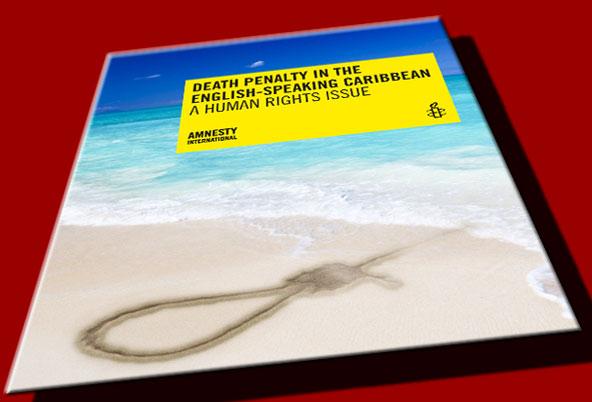
Call to end flawed Caribbean death penalty
Caribbean
On the occasion of Human Rights Day this December 10, 23 Caribbean civil society organisations signed an appeal “calling on governments in the region to take steps towards ending the death penalty”. The signatories stated that “the death penalty violates the right to life as enshrined in the Universal Declaration on Human Rights” whose anniversary date marks Human rights day every year.
Amnesty International, one of the signatories and a member of the World Coalition, also released a report titled “Death penalty in the English-speaking Caribbean: a human rights issue”. The report reads: “While the world is moving away from the death penalty, decision-makers in English-speaking Caribbean countries continue to present the death penalty as a solution to crime while failing so far to effectively address the root causes of rising violent crime and overhaul ailing inadequate criminal justice systems.”
In the words of Dr Arif Bulkan, a Guyanese attorney quoted in the report, “governments like the death penalty, they like to fall back on it because it looks like you are doing something if you hang people but in effect you are not achieving anything”.
Amnesty points to 12 countries that are actively supporting the use of the death penalty, contrary to the global trend towards abolition:
- Antigua and Barbuda
- the Bahamas
- Barbados
- Belize
- Dominica
- Guyana
- Grenada
- Jamaica
- St Lucia
- St Kitts and Nevis
- St Vincent and the Grenadines
- Trinidad and Tobago.
“Hanging is but a simplistic solution”
The report identifies many problems surrounding the application of capital punishment, from mandatory death sentences that exclude mitigating circumstances in violation of international law, to the use of the death penalty against people with mental disabilities and failures to ensure due process and fair trials.
Amnesty highlights arguments from local abolitionists, including reminders that capital punishment does not deter crime. “Hanging is but a simplistic solution designed more for revenge than deterrence…The anger that rages within those affected by these gruesome killings is understandable…This is where level-headed leadership is needed to direct us away from our most primitive, animalistic instincts and towards effective solutions for a perplexing problem,” wrote Jamaican attorney Din Duggan in a newspaper column last year.
Activists have been organising at the regional level and formed the Greater Caribbean for Life network following a conference organised by the Community of Sant’Egidio, another World Coalition member, one year ago.
“A populist measure to keep the electorate happy”
“While Central and Southern American countries are mostly abolitionists, with Venezuela being the first modern state to have done so in 1863, most Caribbean islands retain the death penalty. However, when looking at the practice, Caribbean governments’ calls for the death penalty seem a populist measure to keep the electorate happy,” Javier Zúñig of Amnesty International and Leela Ramdeen, member of the Steering Committee of Greater Caribbean for Life wrote in a column in the Trinidad Express on November 30.
“Flaws in the exercise of due process and systemic failures in the judicial system have meant that death sentences have been frequently overturned. Executions are rare, with the last one being recorded in St Kitts and Nevis in 2008, death rows are empty in Antigua and Barbuda, Belize, Cuba and Dominica and at least four countries have not passed death sentences since 2005,” they added.
Amnesty’s report concludes with a call for a moratorium on executions in line with United Nations resolutions and for the commutation of all death sentences. Amnesty also asks Caribbean governments to “immediately remove all provisions in national laws that violate international human rights law” and “reform and improve criminal justice systems”.
The organisation is preparing to publish additional resources to help regional abolitionists.
The World Coalition has decided to focus on the Caribbean for the 11th World Day Against the Death Penalty on October 10, 2013.






